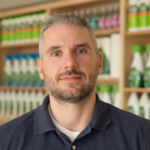A conversation with PepsiCo, Mars Incorporated, Tetra Pak, and Seventh Generation
SPC Bioplastics Converge
May 31, 2017 - Jun 1, 2017 Georgetown, Washington, D.C.
Program
1:30 pm - 5:00 pm ET
Bioplastics Training Session
Speakers
Nina Goodrich
Sustainable Packaging Coalition
Adam Gendell
Sustainable Packaging Coalition
Dr. Paul Fowler
Diligentia Consulting
LED BY INDUSTRY EXPERTS, THIS HALF-DAY TRAINING SESSION WILL COVER THE FOLLOWING TOPICS:
Bioplastics – a diverse family of very different materials
The training course will begin with a comprehensive overview of the range of different bioplastics in the marketplace as well as in development. Important definitions and concepts such as bio-based, biodegradable, compostable, intermediates, drop-ins and additives will be discussed.
Feedstocks Overview
This session will focus on the diversity of feedstocks available for bioplastic manufacture including starting materials from agricultural and forestry production, processing residues, and petroleum components. Sourcing considerations such as impacts on environmental goods and services, land use change, food versus non-food, and crop nutrient management will be discussed.
Recovery Options and Infrastructure
Drawing from the Access Study we will share the different options for recovery of bioplastics as well the different technologies available for end of life of bioplastics and compostable materials.
Selection of bioplastics for your applications
In this technical session, the broad performance attributes of different bioplastics will be covered (for example melting range; elongation to break; gas and moisture barriers) to provide an indication of the range of end-use applications that can be met and the attributes important end users when considering the adoption of bioplastics for use in their products and packaging.
Economics
We will discuss the different economic models companies and technology partners have developed as well as how market conditions impact costs and drivers. Considerations such as scale, innovation, volatility in fossil fuel prices and policy and regulation have an effect on bioplastics adoption.
Certification and Marketing Claims
Certifications and test methods relevant to validating bio-based provenance and/or compostability will reviewed, including materials from ASTM, ISO, FTC, USDA BioPreferred and BPI. This session will highlight the key points that brand owners, converters and suppliers need to know to substantiate claims related to bioplastics in their products and packaging.
6:20 pm - 8:30 pm ET
Dinner & Dialogues
Speakers
Adam Gendell
Sustainable Packaging Coalition
Charlotte Dreizen
Sustainable Packaging Coalition
Meet at hotel lobby for Dinner and Dialogues
D&D#1 What’s Important When Considering Biobased Feedstocks for Plastic? Led by Adam Gendell, Associate Director, Sustainable Packaging Coalition, GreenBlue
D&D#2 Opportunities and Challenges for Compostable Plastic led by Charlotte Dreizen, Project Associate Sustainable Packaging Coalition, GreenBlue
7:45 am - 8:45 am ET
Morning Refreshments, Exhibit Hall Opens
8:45 am - 9:30 am ET
What Are We Looking For In Bioplastics Technologies, Performance, and Recovery? A Panel Conversation with Brands
Speakers
Sri Narayan-Sarathy
PepsiCo
Rachel Goldstein
Mars, Incorporated
Elisabeth Comere
Tetra Pak
Derrick Lawrence
Unilever
9:45 am - 10:00 am ET
Natureflex: Compostable and Renewable Cellulose-Based Packaging Films
Speakers
Jake Hebert
Futamura
This flash talk will discuss cellulose-based packaging films, including how they are made, technical and environmental attributes, use in lamination with bio-based sealant films, and examples in the marketplace. It will highlight the use of renewable bio-based resources and options for alternate end-of-life scenarios for flexible packaging.
10:00 am - 10:15 am ET
Value Proposition of Braskem’s Green Polyethylene to Meet Sustainable Development Goals
10:15 am - 10:30 am ET
Rethink Bioplastics!
Speakers
Steve Davies
NatureWorks
Time to get over the longstanding definition of bioplastics as “plastics that are either bio-based, biodegradable, or both”. NatureWorks’ Steve Davies argues the bio-industry’s continued resolute focus strictly on where its materials come from and where they go is ultimately self-limiting. In the past decade especially, the industry as a whole has made big strides in broadening the functional property set of its materials, and the number of applications, as well as the new grades and formulations have proliferated. Time to focus the functional properties of these new materials.
10:30 am - 11:00 am ET
Break and Visit to Exhibits
11:00 am - 11:15 am ET
11:15 am - 11:30 am ET
Creating Value with Biopolymers
Speakers
John Moore
Danimer Scientific
Growing awareness and sensitivity to the issues caused by discarded plastics have most brand owners taking steps to reduce their impact on the environment. Biopolymers provide an opportunity for brands to create value by highlighting their commitment to reducing the consequences resulting from the disposal of traditional polymer packaging. As brands look to differentiate themselves, it is imperative to understand what is important to your consumers. Take a walk through this process to understand how we move from conceptual to commercial using biopolymers to enhance your market position.
11:30 am - 11:45 am ET
Mapping Out a Testing Plan
Speakers
Norma McDonald
OWS
As your company invests in the move to bioplastics, mapping out a plan for testing is key in order to reduce the cost and time. The testing plan will reflect your marketing objectives and maximize your flexibility to make future changes.
11:45 am - 12:00 pm ET
Total Corbion
Speakers
Derek Atkinson
Total Corbion PLA
Total and Corbion formed their PLA joint venture on March 2nd 2017.
The parent companies bring different strengths for the table. Total has extensive experience in the product and marketing of various commodity polymers, primarily PE, PP and PS. Corbion is the world’s largest producer of lactic acid with extensive skills in extremophylic fermentation. Corbion is the exclusive supplier of lactic acid, both D and L, to the joint venture. Total Corbion PLA was formed to commercialize, essentially to produce and market, PLA based on the manufacturing technology developed by Corbion in association with Sulzer. Total Corbion PLA’s assets consist of a 75kT lactide plant in Map Ta Phut, Thailand, which is currently being expanded to 100kT, a 1kT pilot plant which is currently being installed at Map Ta Phut and a 75kT PLA plant currently under construction. The PLA plant is on time and is expected to be fully commissioned sometime around the middle of 2018.
The PLA pilot plant will be used to train the operators who will run the large plant, to develop novel grades and to get FDA FCN approval for the latest Total Corbion PLA recipes to facilitate market entry.
Currently Total Corbion PLA is having the full range of PLAs toll manufactured from its lactides. These include various homopolymer PLLA and PDLA grades that have pushed the operating window for PLA’s into durable and high heat applications previously not open to conventional optical isomerically impure PLA’s that currently comprise the majority of the market as well as standard grades. Total Corbion PLA also offers the option of 100% non-GMO grades where preferred. Corbion ensures that all its feedstocks are sustainably sourced and is currently leading the push for Bonsucro accreditation of its suppliers in Thailand.
The presentation will cover our progress to commercialization and how the use of homopolymers are being used to address significant end of life issues for applications such as coffee pods.
12:00 pm - 12:15 pm ET
Enzymatic Polymerization: Engineered PolySaccharides and BioPlastics Application Examples
Speakers
Christian Lenges
DuPont Industrial BioSciences
Polysaccharides are important biopolymers with a wide range of industrial and consumer product applications. Historically, structural polysaccharides such as cellulose, have been the backbone of early material science with many applications in fibers, films, and early thermoplastics. The underlying enzymatic polymerization process offers the opportunity to design the polymer structure and the material properties of these new biomaterials.
DuPont Industrial Biosciences has developed a family of engineered polysaccharides ranging in molecular weights, solubility, and polymer architecture. In this flash talk, DuPont’s Christian Lenges will introduce this new category of polymerization process and highlight application examples in the bioplastics / packaging space.
12:15 pm - 1:30 pm ET
Strolling Lunch with Exhibitors
1:30 pm - 1:50 pm ET
Changing the Business Model from Linear to Circular
Speakers
Diane Martel
Tarkett
How can a company use the circular economy model powered by Cradle to Cradle to change their business model? Mega trends speak about overpopulation and growth of the “middle class which will impact our resources especially finite ones.” We are currently borrowing from the future to meet our needs today. How do we change the model to make a positive impact on the planet?
1:50 pm - 2:10 pm ET
2:10 pm - 2:50 pm ET
The Consumer and The Customer Angle: Brands Working With Retailers, A Panel Conversation
Speakers
Sarah Dearman
The Recycling Partnership
Kim Carswell
Director of Packaging, Target
Charlie Schwarze
Amcor
3:20 pm - 3:50 pm ET
Driving Markets for Bioplastics: The USDA BioPreferred Program
Speakers
Marie Wheat
USADA BioPreferred
The USDA BioPreferred® program’s mission is to serve as a catalyst for the success of biobased products in the global marketplace. The USDA BioPreferred Program works to increase Federal procurement of biobased products and to create market-pull through the USDA Certified Biobased Product label. Bioplastic intermediates and finished product companies are increasingly choosing to obtain the USDA Certified Biobased Label for their products. Discussed will be the status of federal rulemaking process that will designated 12 categories of intermediates (e.g. plastic resins) for preferred purchasing by the federal government. Marie Wheat will also discuss a follow-up study to a 2015 report: An Economic Impact Analysis of the U.S. Biobased Product Industry. Commissioned by the USDA BioPreferred Program, the 2015 report examined the economic effects of the U.S. biobased products industry, including metrics at the state level.
3:50 pm - 4:05 pm ET
Solvent Based Compostable Adhesive for the Flexible Packaging Industry
Speakers
Victor Bernshtan
Morchem
This flash talk will introduce compostable solvent based laminating adhesive to be used in combination with compostable films.
4:05 pm - 4:10 pm ET
5:30 pm - 8:30 pm ET
Evening Dine Around Tour
Join your colleagues on a food tour of the historic neighborhood of Georgetown. The tours will take place in the heart of Georgetown and will combine its history, architecture, and culture with cuisine from some of the area’s best restaurants.























